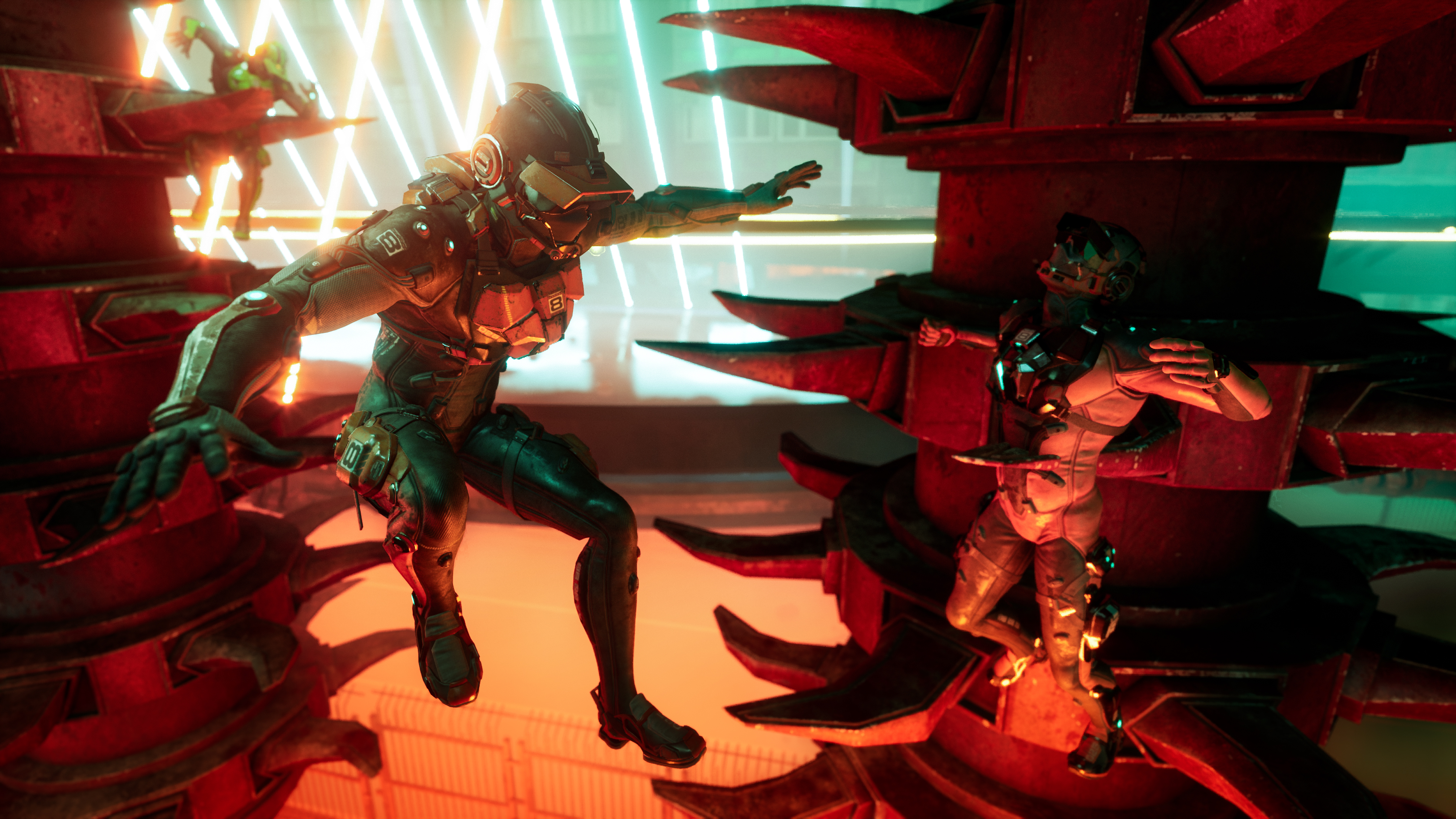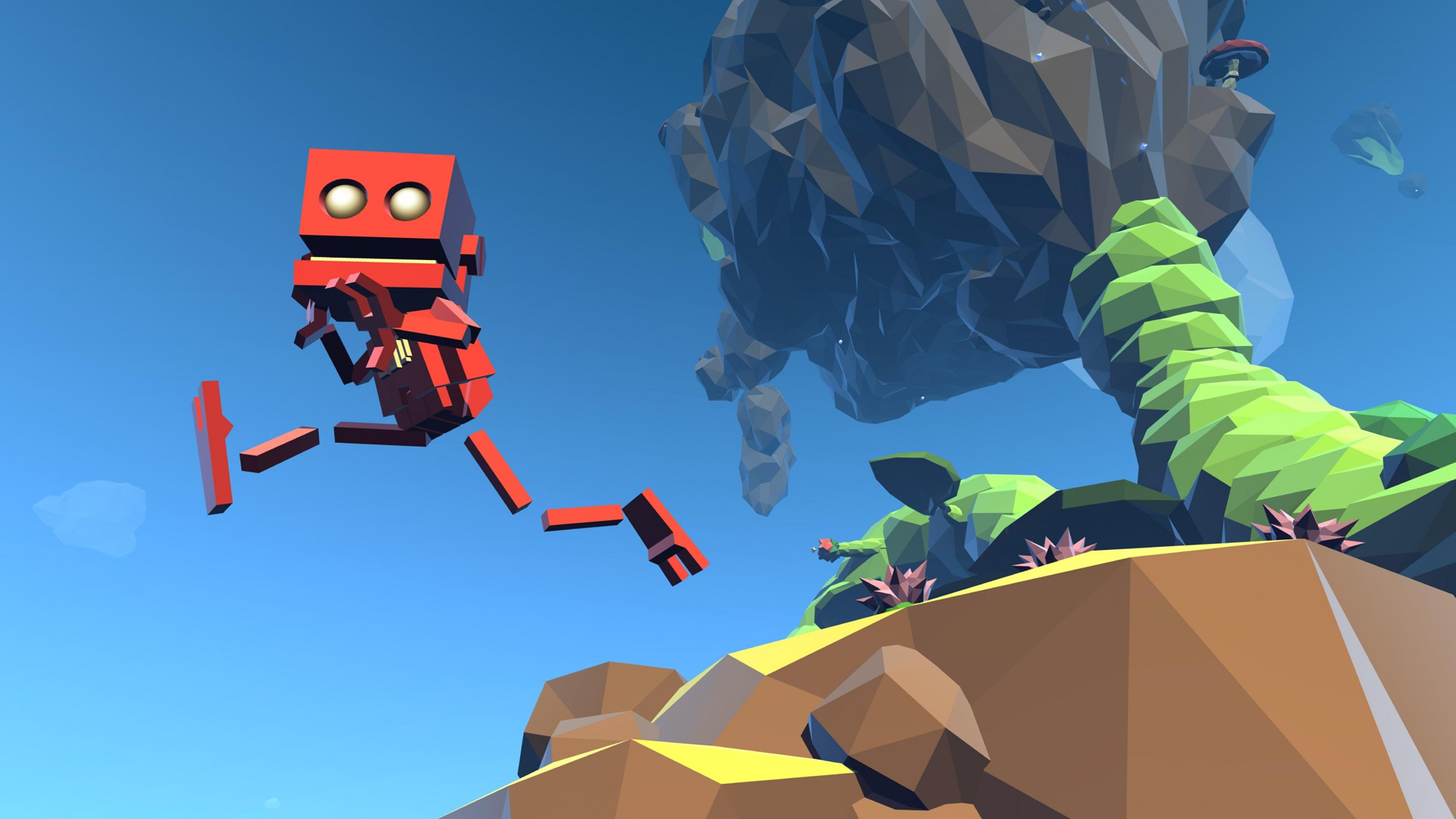Smaller games can be 'more creative,' says designer who made one of Ubisoft's most acclaimed games with a tiny team
"If you've got a more limited budget than triple-A, and you've got a more limited timeframe to do it, I think you get more innovation..."

Upcoming multiplayer combat foot-racing game DeathSprint 66 looks pretty cool, but I still might be a little nervous if I were responsible for making back its budget. A genre of news story we've become pretty familiar with is "niche multiplayer game was great, but not enough people played it to justify keeping the servers on." Knockout City, for example, shut down a couple years after it launched. Rumbleverse lasted only six months.
At the Game Developers Conference last month, DeathSprint 66 director Andrew Willans told me that he's confident in the game, saying that playtesters are "overwhelmingly finding something which is very fresh." That freshness, he thinks, is due in part to the scope of the project: It's a medium-sized game from a medium-sized team, and will be "sensibly priced."
"I think that [under $70] price bracket … it allows you to be a bit more creative," said Willans. "If you've got a more limited budget than triple-A, and you've got a more limited timeframe to do it, I think you get more innovation on that scale. It's not indie, and it's not triple-A, it's somewhere in between. And when I look at the indie market and the amount of innovation constantly being pushed, there are really exciting things there which you don't tend to see in the bigger triple-A games. And I think there's this lovely middle ground, where we're aiming to be as a studio."
DeathSprint 66 developer Sumo Newcastle is made up of about 80 developers, and only around half of them are working on DeathSprint. The others are working on another, unannounced game.
The concept for Deathsprint 66 has been around for several years, but it's only been in development "in earnest" for a little under a year, and it's set to release sometime in 2024. Its design has been refined and simplified over the course of that short development period—at one point it included guns, but now Willans says the studio is "focused on just the fun and sensation of being in that flow state of running."
A benefit of smaller teams and smaller projects, Willans said, is that junior team members get more input—their feedback doesn't have to go up a long chain of command—and everyone gets to see results much faster than they do with big-budget projects.
"There's lots of people on our team that might be quite junior to the industry," Willans said. "And these kinds of games allow them to feel buy-in and ownership, be a part of something that they're going to see in one to two years time, compared to some of the games I've worked on in my career that took four-and-a-half years to reach the market. At the end of that I'm just exhausted, the teams are exhausted. And it feels like it's all on that moment, and if that's not a success, that's hard, you know? If it doesn't take off."
Keep up to date with the most important stories and the best deals, as picked by the PC Gamer team.

Willans previously worked at Ubisoft, and some of the big games he contributed to were The Division and Watch Dogs. The Ubisoft project he says he's proudest of, however, is Grow Home, a critically acclaimed physics climbing game that was made by a small team at Ubisoft Reflections.
"Initially, there were about six or seven of us on [Grow Home], tiny budget," said Willans. "And it was like the little game that could, and we were just left in a corner to let this thing grow, pardon the pun. And I think the more that we can do that, the better we are."
Willans noted that aside from producing great games on their own, small teams may come up with innovative ideas that later end up in big triple-A games. Like the Grow Home team, the DeathSprint team is part of a much larger organization: Sumo Newcastle is one of a big group of Sumo Digital developers, which are all subsidiaries of Tencent.
You'd hope that being part of a giant company would protect game developers from the need to endlessly hit home runs to be secure, but especially in recent times, that doesn't always seem to be the case. Sony's acquisition of Bungie didn't protect the Destiny 2 developer from layoffs, as just one example. Willans does think that being part of a bigger organization gives him some leeway, if not freedom to act with total disregard for commercial success.
"I do think that security allows us to take some, I'm going to say, calculated risks," he said "We're allowed to push it, and we're allowed to test things because we're not going cap in hand for mega mega budgets."
DeathSprint 66 is set to release sometime this year, and Willans says the plan is to release it as a complete package that includes everything players need for "sensible progression that's going to keep them engaged" at "a sensible price." No gameplay footage has been released publicly, but I saw some clips at GDC and wrote about them here.

Tyler grew up in Silicon Valley during the '80s and '90s, playing games like Zork and Arkanoid on early PCs. He was later captivated by Myst, SimCity, Civilization, Command & Conquer, all the shooters they call "boomer shooters" now, and PS1 classic Bushido Blade (that's right: he had Bleem!). Tyler joined PC Gamer in 2011, and today he's focused on the site's news coverage. His hobbies include amateur boxing and adding to his 1,200-plus hours in Rocket League.

